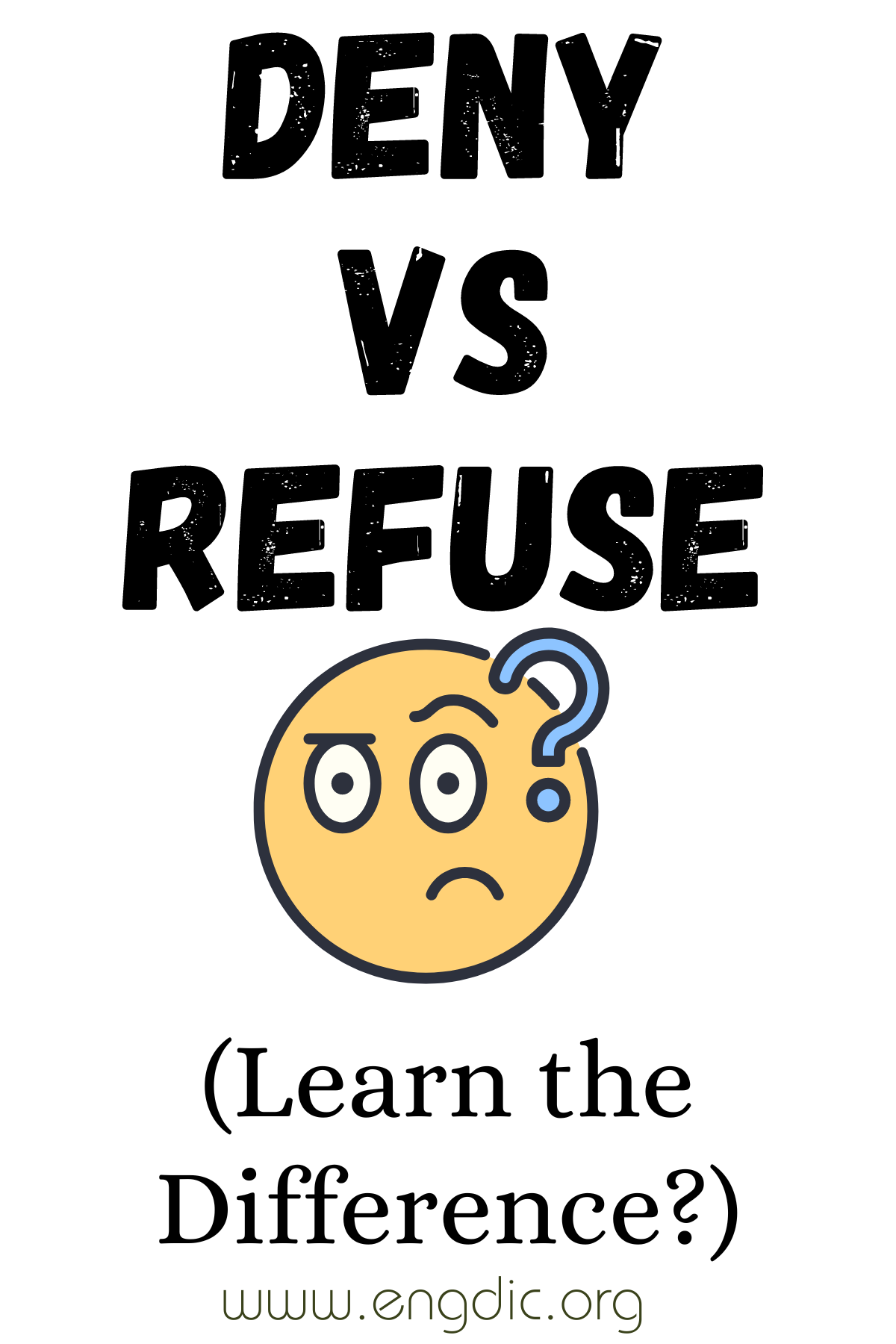The difference between “deny” and “refuse” lies in their underlying meanings and contexts of usage. While both words involve rejecting or declining something, “deny” often implies a contradiction or negation of truth or existence, whereas “refuse” typically indicates a deliberate rejection or unwillingness to comply with a request or demand.
Deny:
Definition: “Deny” means to declare that something is not true or to withhold something from someone. Usage: It’s commonly used in legal proceedings or situations where the truthfulness of a statement or the existence of something is questioned.
Examples:
- The suspect denied any involvement in the crime.
- She denied the accusations vehemently, claiming they were baseless.
- The company denied the allegations of environmental pollution.
Refuse:
Definition: “Refuse” refers to the act of declining or rejecting something intentionally. Usage: It’s often used in situations where a choice is involved, and someone actively chooses not to accept or comply with something.
Examples:
- He refused to sign the contract because he found the terms unfavorable.
- The workers refused to work overtime without proper compensation.
- The restaurant refused to serve customers without reservations during peak hours.







